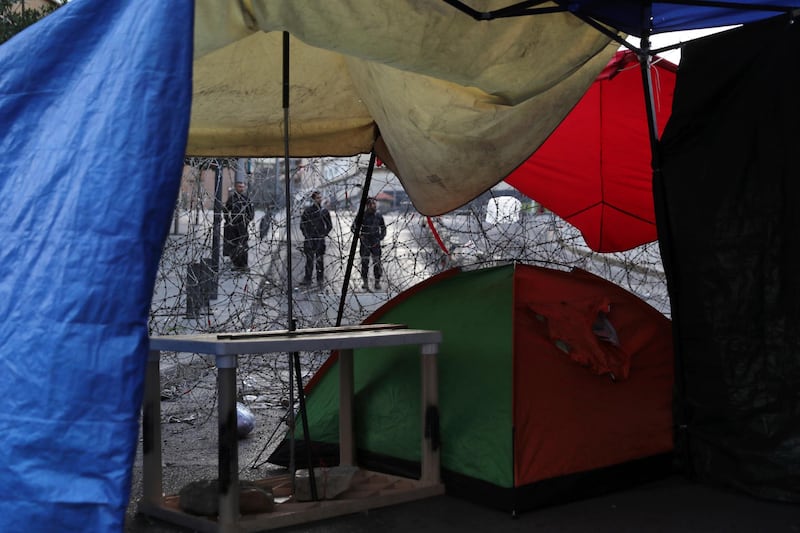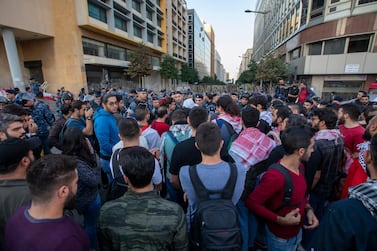Several top Lebanese politicians could face corruption trials as anti-government protests that began over a month ago have increased pressure on the judiciary to act.
On Wednesday, financial prosecutor Ali Ibrahim pressed charges against caretaker information minister Jamal Jarrah and former telecom ministers Nicolas Sehnaoui and Boutros Harb, in the latest high-profile corruption cases.
"People are not benefiting from the sectarian patronage system any more," said Riad Kobeissi, head of local TV station Al Jadeed's investigative unit.
"As a result, the public’s interest in corruption cases has increased, despite them being sometimes several years old. This has put pressure on the judiciary to act."
Protesters blame their leaders for mismanaging the country’s economy and bringing it to the brink of financial collapse.
Some of the officials charged by Mr Ibrahim have lashed out at him. Mr Jarrah on Thursday accused him of leaking the cases to the media in a “wrongful manner”.
But he said he would co-operate fully with the investigation.
Mr Sehnaoui said: “I am ready to appear before the competent judicial authority with full confidence that this would prove that there is no flaw in my record as a public servant.”
Caretaker justice minister, Salim Jreissati, did not respond to a request for comment.
President Michel Aoun has also repeatedly promised to fight corruption since protests started, announcing on November 7 that 17 corruption files had been referred to the judiciary.
Lebanon ranks 138th out of 180 countries in Transparency International's latest corruption perception index.
But top officials have rarely been jailed in the past because the judiciary is subject to pressure from politicians, Kobeissi said.
Mr Ibrahim has repeatedly said in past years that he was aware of corruption problems.
In February 2018 he said that corruption in the property sector was costing Lebanon up to $40 million (Dh146.9m) a year.
At the time, Mr Ibrahim blamed government agencies for not co-operating to fight corruption.
Officials suspected of corruption have countered investigative journalists with defamation cases, as was highlighted by a Human Rights Watch report in November.
Caretaker prime minister Saad Hariri, who resigned on October 29, abolished the anti-corruption ministry in his latest government, saying Parliament was working on a new anti-corruption law.
Shortly after forming his latest government in January, Mr Hariri recognised that his country did not implement many of its regulations.
“The problem here is that we create bodies without activating them," he said.







